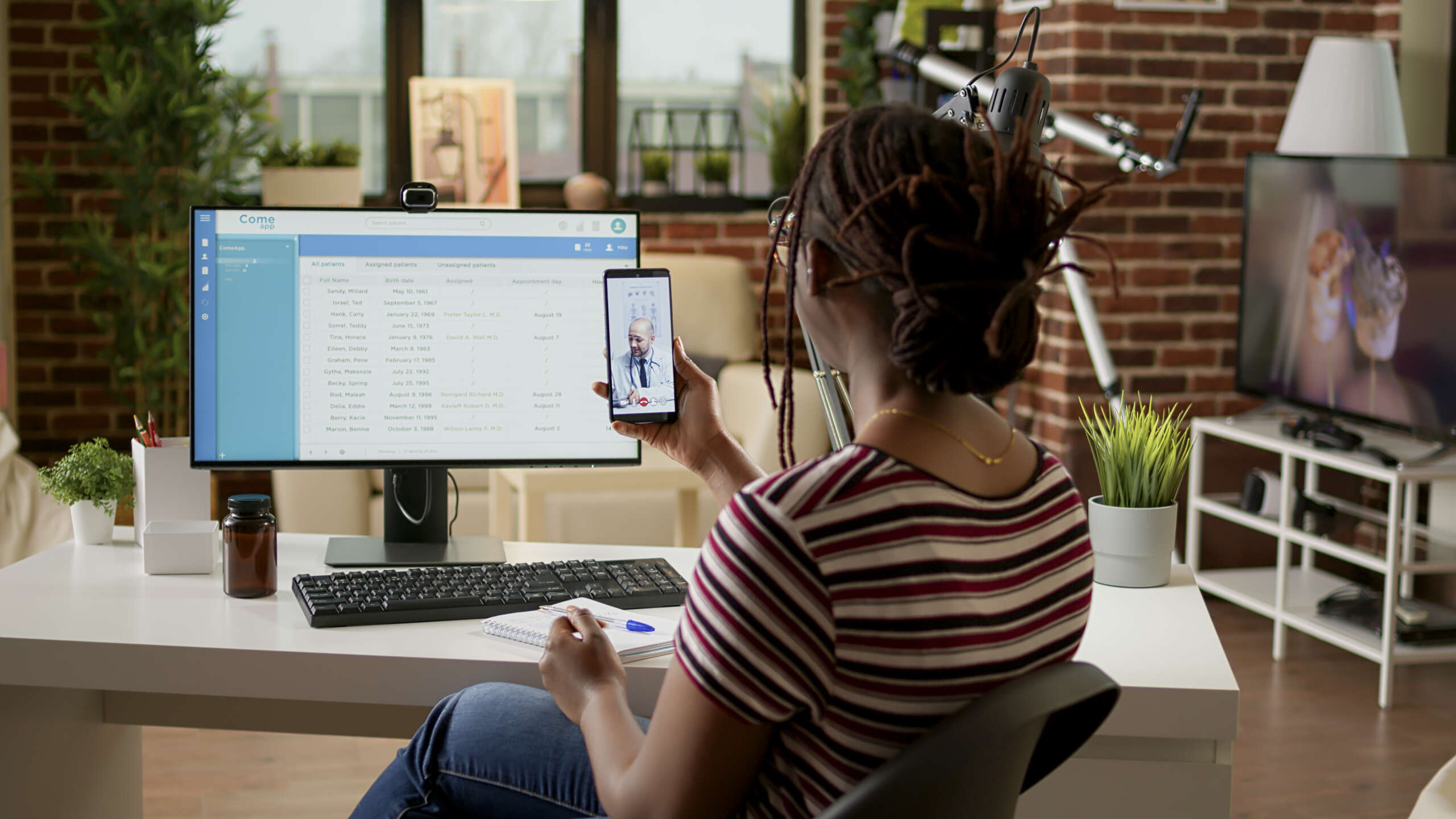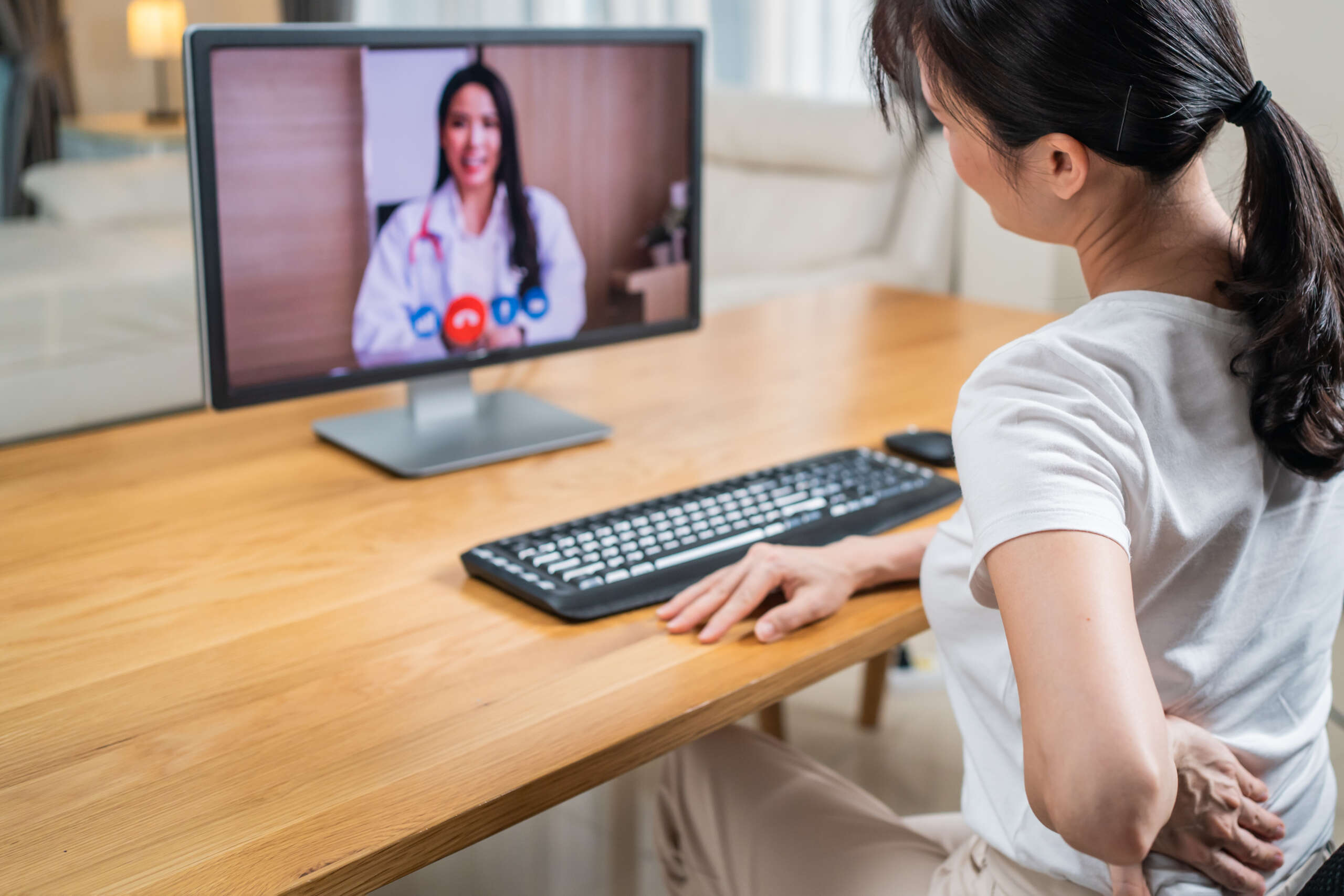

You’ve probably heard of online shopping, online classes, and even online GP appointments, but what about online physiotherapy? Yep, you read that right! Physiotherapy has embraced the virtual world, and it’s time we unwrap the obvious question of how does that work, without seeing someone face to face.
Picture this: You’re sitting comfortably at home, cup of tea in hand, and on the other side of your screen, a qualified physiotherapist is ready to guide you through your journey to recovery. Intrigued? Let’s unravel how online physiotherapy works and why it’s not just effective but can be even better than in-person sessions.
The Rise of Telehealth and Online Physiotherapy
Before we delve into the how’s and why’s, let’s address a phenomenon that has reshaped healthcare landscapes – telehealth. Since the onset of the COVID-19 pandemic, telehealthcare has surged, and for all the right reasons. The need for safe, accessible, and efficient healthcare paved the way for online consultations, and guess what? It’s been a roaring success. How though does this translate to something that is traditionally seen as requiring a hands-on approach, like physiotherapy?
It’s All About the Expertise
First things first, let’s bust a myth. While hands-on treatments are indeed valuable in many cases, the heart of physiotherapy lies in the expert guidance, assessment, and personalised plans. A clinical paper emphasised that a patient’s engagement and adherence to exercises have a greater impact on recovery than the modality of treatment. In simpler words, it’s not the physical touch, but the knowledge and guidance that the patient is able to understand, that is the key to progress.
The Power of Personalisation
Online physiotherapy thrives on personalisation. Think about it – you’re in your own space, where you’re most comfortable. You’re not navigating traffic, struggling to park or pacing hospital corridors trying to find the right waiting room. You’re relaxed, and that makes you more likely to have an effective session. A 2017 study found that tele-rehabilitation; a form of online physiotherapy, led to similar improvements in mobility and pain reduction compared to traditional in-person therapy.
Convenience and Accessibility – The Game-Changers
Remember the days when you had to plan your diary or get time off work for appointments? Online physiotherapy changes that. You book a time that suits your lifestyle, and there you are, ready for your session. No long waits, no last-minute cancellations, and no geographical constraints. You’re in control, and your recovery revolves around your comfort.
Building Trust, One Screen at a Time
The connection between a patient and their physiotherapist is vital for successful outcomes. Online sessions are no different. Through video calls and interactive platforms, you connect with your physio just like you would in person. The trust, care, and guidance remain, only now, they’re only a click away.
Success Stories: Beyond the Screen
Online physiotherapy isn’t just a convenient alternative – it’s a proven success. During the pandemic, when face-to-face consultations became challenging, telehealthcare became a lifeline. The NHS reported a significant increase in the use of telehealth as a way to deliver services, with patients benefiting from improved mobility, pain relief, and overall well-being.
In Conclusion: The Future of Healing
So, how does online physiotherapy work? It works seamlessly, guided by expertise, personalisation, and a commitment to your well-being. The increase in telehealth care during the pandemic serves as a testament to its effectiveness. Whether you’re dealing with muscular pains, sports injuries, or work-related discomfort, online physiotherapy is here to support you on your journey to recovery, all from the comfort of your own space.
Embrace the future of healing. Embrace online physiotherapy.
References:
- Barton, C., et al. (2018). The Relationship Between Pain Beliefs, Negative Back Beliefs, and Disability in People Following Surgery for Lumbar Disc Herniation. Physiotherapy, 104(2), 235-241.
- Crow, J. L., et al. (2017). A Randomized Controlled Trial of Telerehabilitation for People with Multiple Sclerosis and Spinal Cord Injury: A Comparison of Telerehabilitation and Conventional Rehabilitation Outcomes. Journal of Neurologic Physical Therapy, 41(2), 87-98.
- Tyler, J. M. B., Pratt, A. C., Wooster, J., Vasilakis, C., & Wood, R. M. (2021). The impact of increased outpatient telehealth during COVID‐19: Retrospective analysis of patient survey and routine activity data from a major healthcare system in England. International Journal of Health Planning and Management, 36(4), 1338–1345. doi: 10.1002/hpm.3185
